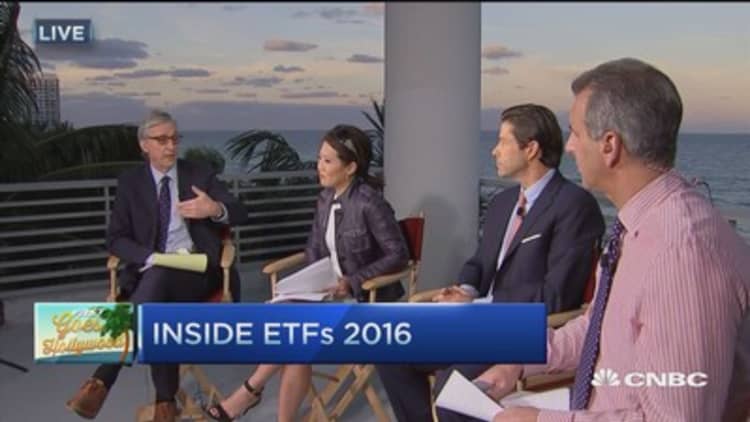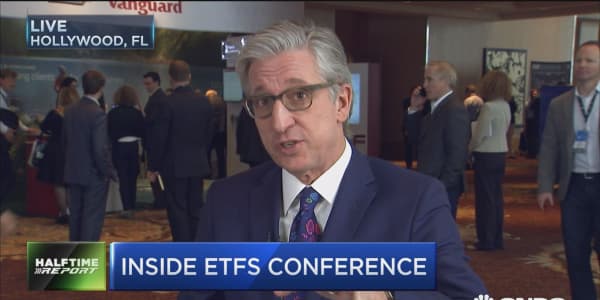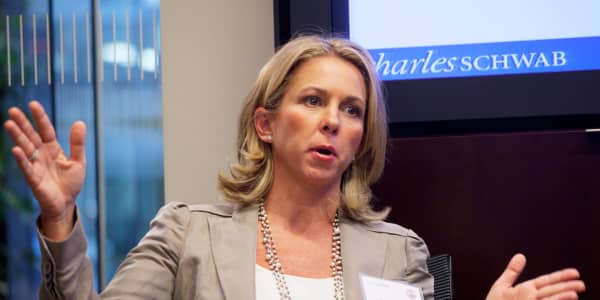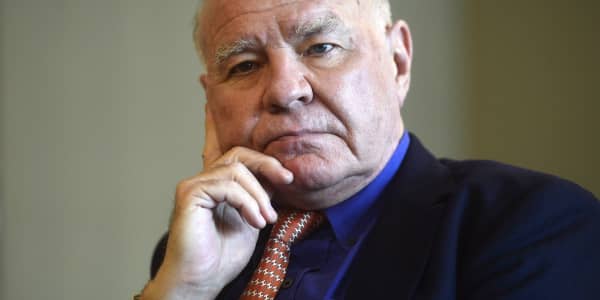Stock market wreckage this year will likely deter the Fed's interest rate hiking plans, longtime bull Jeremy Siegel said Tuesday.
After voting to raise its interest rate target in December, the central bank indicated it could move four more times this year. But Siegel believes a tumultuous market, driven by a "deflationary wave," will cause the Fed to delay.
"The Fed is basically going to be on hold going forward. We're not going to see those hikes unless things really normalize," the Wharton School finance professor said at the ETF.com Inside ETFs conference in Hollywood, Florida.
Read MoreThis is when Wall Street sees the next rate hike
Expectations for rate increases have already diminished ahead of the outcome of the Fed policymaking committee's next two-day meeting, which started Tuesday. Markets are pricing only a 13 percent chance of a hike this week and a 33 percent probability at the Fed's March meeting, according to the CME Group's FedWatch tool.
The has fallen more than 7 percent this year amid an 18 percent plunge in U.S. oil prices. The Fed cited global market volatility in its decision not to raise rates last September, and will likely do so again this year, Siegel said.
Top Fed officials have repeatedly highlighted low inflation, which continues to lag below the central bank's 2 percent target. A more than 40 percent drop in the price of U.S. oil has contributed to that sluggishness.
"It is the deflationary wave that is the major source of problems," Siegel said.

Indications of a rate hike would bode well for markets because they would signal that the Fed sees a recovery ahead, he said.
Siegel, a longtime market optimist, joked that he is an "endangered species." But this year has tempered even his expectations.
He said investors will have to adjust to lower returns in both stocks and bonds moving forward. Aside from the drop in stocks, the benchmark U.S. 10-year Treasury note yield has recently lingered near 2 percent, down more than 10 percent for the year.
Still, Siegel stressed that stock valuations are "not at all unreasonable," criticizing use of the term "bubble" to describe equities at their current levels.







